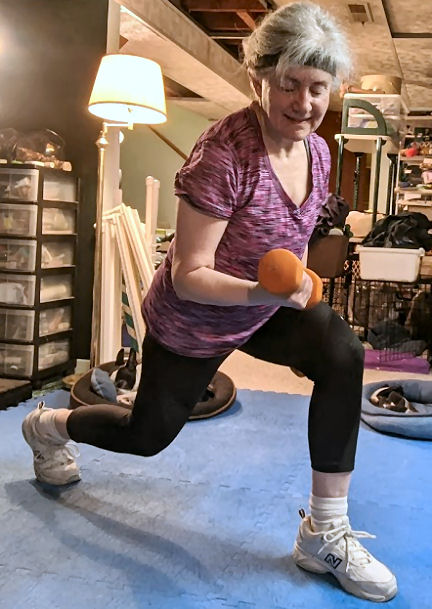COVID takes your brain to interesting places. You’re sitting there and trying to focus, and your brain takes a detour down a rabbit hole. The other day I was thinking about positive reinforcement training and rewards. In my other life, I’m a dog trainer, using positive methods, and lots of rewards. So I thought, what’s different about people and motivation – people deserve great rewards when we do awesome stuff, just like our dogs do! Motivation and reward have to be linked, or I wouldn’t get things done.
Rewards in Positive Reinforcement Dog training
When I’m training my dogs, I reward things I like. That has the effect of the dogs doing that thing I liked more, so they get more rewards. Motivation and reward are linked. We say, “What gets rewarded gets repeated.” If the reward is a high value treat, my dogs want more of it. They think, “How can I get more of that yummy cheese?” Pause a moment. “Oh yeah. I was sitting.” They probably don’t use words, but I can imagine the thought process goes like that.
Rewards for Humans
When it comes down to it, people like rewards too. Our rewards might take a different form – less cheese, perhaps, and more chocolate, but cheese is good too. I have a feeling that we often disregard the “Reward” part that comes after we complete an item on our “To Do” List. And, yet, to keep us motivated, the reward plays an important part. I always say that we should celebrate every small victory! Every step toward a goal’s completion deserves a reward. Incidentally, achieving goals is also great for our optimism and our resilience.
Enlightened self-interest
Enlightened self-interest is what makes the world go around. If I don’t want to do something, I’m not going to do it unless I have a very good reason to do it. Like exercise. If I were just starting an exercise program, I’d need really good rewards to make me change into workout gear and get all out of breath and sweaty. But if I promise myself that I’ll get a new top if I stick to my program for a solid week, then I’ll stick with it.
Hierarchy of rewards
But not every reward is the same. Just like I do for my dogs, we should have a hierarchy of rewards for us. For a dog, kibble is at the low end of the hierarchy and hot dog may be at the high end. For us? Perhaps taking a five-minute breathing break is at the low end of the reward spectrum, and a new set of colored gel pens at the high.
Or if the task is more difficult, then a new pair of shoes may qualify as a high-end reward. As a reward, that pair of shoes carries much more value than a 5-minute break, so the task it’s rewarded for must be more difficult or time-consuming. Pair the reward with the task. And make sure that the reward is something you really want. You won’t be motivated to perform the task by that reward if you don’t care if you receive it or not!
Don’t wait until it’s finished for a reward
You may think that the carrot dangling on the end of the stick will see that task done to completion. But research has shown that a reward given when a task is started helps to keep us working. If we like the reward, then we have a positive association between it and the task, and it keeps us going. And this immediate reward doesn’t have to be big, either. The study showed that smaller, more frequent rewards had a bigger influence on a person’s motivation to complete a task than a bigger reward when the task was complete. The person’s mindset was changed to continue the task even for a smaller reward.
Motivation and rewards are linked – so make sure you’re clear on what your reward is for performing a task. Make sure the reward is something you actually want. And rewarding yourself for starting a project may just keep you going through to the end.

